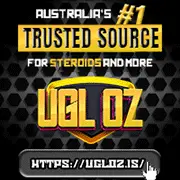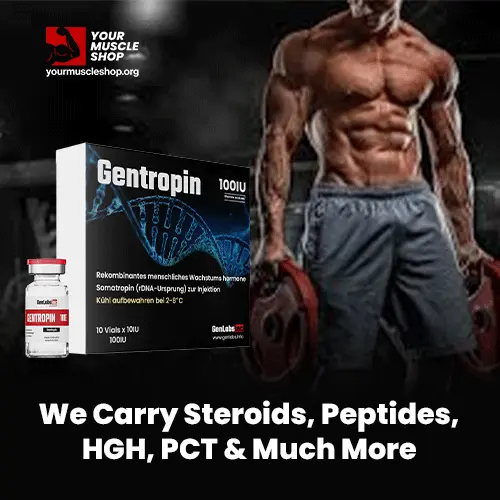Rick Collins
New member
[For those who missed it last week, here, FYI and without further commentary (most of you already know my feelings on this topic), is the USA Today coverage of the Biden bill]
Best,
Rick Collins
www.teamlegalmuscle.com
***************************
Recent steroid furor prompts two senators to propose crackdown
By Dick Patrick
USA TODAY
The furor over the budding THG steroid scandal has prompted lawmakers to
take action.
Last week Sens. Joseph Biden (D-Del.) and Orrin Hatch (R-Utah) introduced
the Anabolic Steroid Control Act of 2003, which would ban THG, the recently
discovered designer steroid tetrahydrogestrinone, as well as derivatives of
another controversial substance, androstenedione.
Andro was popularized by the 1998 admission by baseball star Mark McGwire
that he used the substance, which can be purchased over-the-counter but is
banned by the Olympics, the NFL and the NCAA though not MLB.
''Despite some of the misgivings I have, this law on balance is an enormous
step forward in the fight against steroids,'' says Gary Wadler, a physician
who has written extensively about drugs in sport. ''This has potential for
major, major impact assuming the act is not eviscerated in the legislative
process.
''In a global view, andro is a bigger story than THG because of the numbers,
the sheer ubiquity of it. The fact is a kid can currently get andro legally.
They don't have to go to the back door of a chemist.''
In Wadler's view, the proposed legislation's biggest flaw is that
androstenedione is not banned directly unless there is a special ruling by
the Food and Drug Administration. The bill does include all known andro
derivatives as controlled substances. ''The lack of clarification on andro
is a concern,'' Wadler says. ''The caveat on andro doesn't make sense.''
Wadler's other concern: DHEA, like andro an over-the-counter substance that
breaks down into testosterone in the body, remains on the bill's exempt list
though it's banned by sports bodies including the Olympics. ''Biologically
and chemically, this is inconsistent,'' he says. ''It's considerably
disingenuous, if you think about it.
''This is part of the political horse trading. They wanted to leave
(supplement makers) with something on the shelf. DHEA is marketed to the
older, aging population to make up for natural decline. Andro is marketed
toward the younger, more athletic population.''
There are important provisions in the bill, Wadler says, including a less
stringent definition of a steroid. No longer does a substance have to be
proved to promote muscle growth to be classified as an anabolic steroid.
Moreover, there are recommendations to review and toughen sentencing
recommendations for violations of the steroid act.
The combination of a less stringent definition of a steroid and the promise
of stiffer sentencing is likely to produce more prosecutions.
Wadler calls the current steroid law, which includes significantly less
harsh penalties for steroids than cocaine or heroin, a case ''of unintended
consequences.''
''The U.S. attorney's office basically said that we can't take our limited
resources and go after steroids for a short-term jail sentence,'' he said.
''It costs too much, and we don't get enough penalty time. Now there will be
motivation to prosecute these cases. That could be the sleeper part of this
legislation.''
The U.S. attorney's office in San Francisco is holding grand jury
proceedings regarding THG, which the U.S. Anti-Doping Agency says has been
provided to track athletes by Victor Conte, who founded BALCO Laboratories
and provided supplements and dietary advice to many high-profile athletes.
Five track athletes tied to Conte have tested positive for THG, recently
discovered by testers after they were given a sample by an anonymous
tipster. The latest to be named, by the Chicago Tribune, is U.S. hammer
thrower John McEwen, who joins middle-distance star Regina Jacobs, shot
putter Kevin Toth and British sprinter Dwain Chambers as ''A'' positive. If
confirmation tests also are positive and the athlete loses an appeal, the
penalty is a two-year ban from competition. Conte denies he is the source of
the THG.
In a related matter, the Los Angeles Times named sprinter Calvin Harrison, a
Conte client, as positive for modafinil, a stimulant that carries no ban for
a first offense.
The San Francisco grand jury is expected to focus on Conte's finances, with
the IRS leading the probe. ''If the proposed law was on the books,'' Wadler
says, ''it could be pursued as a steroid case, not just an IRS case.''
Best,
Rick Collins
www.teamlegalmuscle.com
***************************
Recent steroid furor prompts two senators to propose crackdown
By Dick Patrick
USA TODAY
The furor over the budding THG steroid scandal has prompted lawmakers to
take action.
Last week Sens. Joseph Biden (D-Del.) and Orrin Hatch (R-Utah) introduced
the Anabolic Steroid Control Act of 2003, which would ban THG, the recently
discovered designer steroid tetrahydrogestrinone, as well as derivatives of
another controversial substance, androstenedione.
Andro was popularized by the 1998 admission by baseball star Mark McGwire
that he used the substance, which can be purchased over-the-counter but is
banned by the Olympics, the NFL and the NCAA though not MLB.
''Despite some of the misgivings I have, this law on balance is an enormous
step forward in the fight against steroids,'' says Gary Wadler, a physician
who has written extensively about drugs in sport. ''This has potential for
major, major impact assuming the act is not eviscerated in the legislative
process.
''In a global view, andro is a bigger story than THG because of the numbers,
the sheer ubiquity of it. The fact is a kid can currently get andro legally.
They don't have to go to the back door of a chemist.''
In Wadler's view, the proposed legislation's biggest flaw is that
androstenedione is not banned directly unless there is a special ruling by
the Food and Drug Administration. The bill does include all known andro
derivatives as controlled substances. ''The lack of clarification on andro
is a concern,'' Wadler says. ''The caveat on andro doesn't make sense.''
Wadler's other concern: DHEA, like andro an over-the-counter substance that
breaks down into testosterone in the body, remains on the bill's exempt list
though it's banned by sports bodies including the Olympics. ''Biologically
and chemically, this is inconsistent,'' he says. ''It's considerably
disingenuous, if you think about it.
''This is part of the political horse trading. They wanted to leave
(supplement makers) with something on the shelf. DHEA is marketed to the
older, aging population to make up for natural decline. Andro is marketed
toward the younger, more athletic population.''
There are important provisions in the bill, Wadler says, including a less
stringent definition of a steroid. No longer does a substance have to be
proved to promote muscle growth to be classified as an anabolic steroid.
Moreover, there are recommendations to review and toughen sentencing
recommendations for violations of the steroid act.
The combination of a less stringent definition of a steroid and the promise
of stiffer sentencing is likely to produce more prosecutions.
Wadler calls the current steroid law, which includes significantly less
harsh penalties for steroids than cocaine or heroin, a case ''of unintended
consequences.''
''The U.S. attorney's office basically said that we can't take our limited
resources and go after steroids for a short-term jail sentence,'' he said.
''It costs too much, and we don't get enough penalty time. Now there will be
motivation to prosecute these cases. That could be the sleeper part of this
legislation.''
The U.S. attorney's office in San Francisco is holding grand jury
proceedings regarding THG, which the U.S. Anti-Doping Agency says has been
provided to track athletes by Victor Conte, who founded BALCO Laboratories
and provided supplements and dietary advice to many high-profile athletes.
Five track athletes tied to Conte have tested positive for THG, recently
discovered by testers after they were given a sample by an anonymous
tipster. The latest to be named, by the Chicago Tribune, is U.S. hammer
thrower John McEwen, who joins middle-distance star Regina Jacobs, shot
putter Kevin Toth and British sprinter Dwain Chambers as ''A'' positive. If
confirmation tests also are positive and the athlete loses an appeal, the
penalty is a two-year ban from competition. Conte denies he is the source of
the THG.
In a related matter, the Los Angeles Times named sprinter Calvin Harrison, a
Conte client, as positive for modafinil, a stimulant that carries no ban for
a first offense.
The San Francisco grand jury is expected to focus on Conte's finances, with
the IRS leading the probe. ''If the proposed law was on the books,'' Wadler
says, ''it could be pursued as a steroid case, not just an IRS case.''









